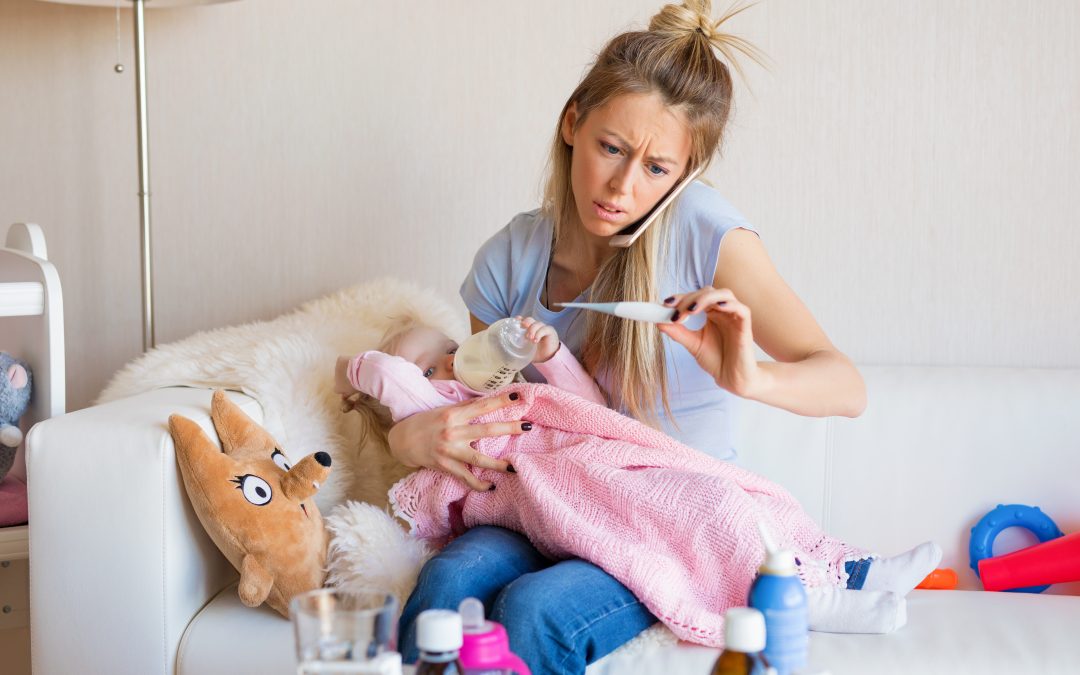
Clear Lake Regional Medical Director of the Pediatric Intensive Care Unit Dr. Gautam Malkani explains the difference and when it’s time to seek medical help
Winter in Texas can be wonderful for those with a new baby – cool weather makes traveling a breeze and opportunities to celebrate with family and friends abound. Unfortunately, winter can also be a stressful time for young families as a baby’s immature immune system battles against peak season for nasty bugs, such as colds, flu, ear infections, and potentially more serious respiratory syncytial virus, or RSV. Clearly, babies can’t talk about their symptoms, so when a little one presents with the telltale signs of a winter illness – coughing, sneezing, or even trouble breathing – it can be difficult for parents to differentiate between sniffles to treat at home or something that may require attention from a medical professional.
What is RSV?
All parents are familiar with colds, but many may not have heard of RSV, a very common and contagious virus which most children will have had by their second birthday. Most parents will never know whether their child’s suffering stems from a cold or RSV because in most cases they present very similarly. For a few babies, however, RSV can progress beyond the standard fever, cough, irritability, runny nose, and sneezing, taking a troubling turn on the third or fourth day.
In these cases, the symptom to pay attention to is trouble breathing. If the baby is breathing a little faster than normal, a trip to the pediatrician is certainly in order. If there are signs of more labored breathing, such as flaring nostrils, contraction between the bones of the rib cage, grunting with breathing, or high-pitched wheezing, the baby will need to be seen more immediately at an urgent care center or an emergency room. A bluish tint around the lips or on the fingertips is another serious symptom that indicates baby isn’t getting enough oxygen.
Could it be asthma?
Particularly in Texas, which due to environmental factors has a population more susceptible to allergies, it’s important to keep in mind a potential third culprit for baby’s symptoms: asthma. Whereas colds and RSV are viruses that typically run their course, asthma is a chronic illness which often goes undiagnosed in babies and young children. If a baby has a nighttime cough or shortness of breath after moderate exercise, particularly if they also have eczema or a family history of asthma, it’s important to seek an evaluation by a pediatrician. If left untreated, asthma can build up into a more serious attack, and sometimes require hospitalization.
It’s possible for a baby to have both asthma and RSV, and if this is the case, there’s a greater chance for complications. Premature babies whose lungs didn’t have as much time to develop inside the womb and those with other chronic medical conditions may also be at greater risk. These babies may require extra monitoring. Parents of these children should stay in regular contact with their pediatrician and map the path to their closest urgent care center or emergency room in case the baby takes a turn for the worse.
An important reminder
At the end of the day, it’s critical to remember that both colds and RSV are viruses that must run their course. Whether baby rides it out at home or in a medical setting, treatment will primarily consist of rest and hydration (although hospitals provide a layer of security for babies who require extra monitoring).
When a baby is sick, it’s common for panicked parents to take their children to a practitioner they wouldn’t normally see, and who doesn’t specialize in pediatrics. In these cases, colds and RSV are sometimes misdiagnosed as ear or other infections that require antibiotics. Remember that for anyone, but especially for babies, taking antibiotics unnecessarily can be harmful because of the risk of side effects and the build-up of resistance that may make antibiotics less effective later in life.
There is no magic cure for RSV, but parents can help prevent it by practicing basic hygiene, such as regular handwashing, and keeping babies far away from people who show signs of illness. In almost all cases, the virus will run its course, and baby and family will be back to their routines in no time.
Dr. Gautam Malkani serves as the medical director of the pediatric intensive care unit at Clear Lake Regional Medical Center, an HCA-affiliated facility that delivers 3,400 babies each year.


.jpg)

.png)